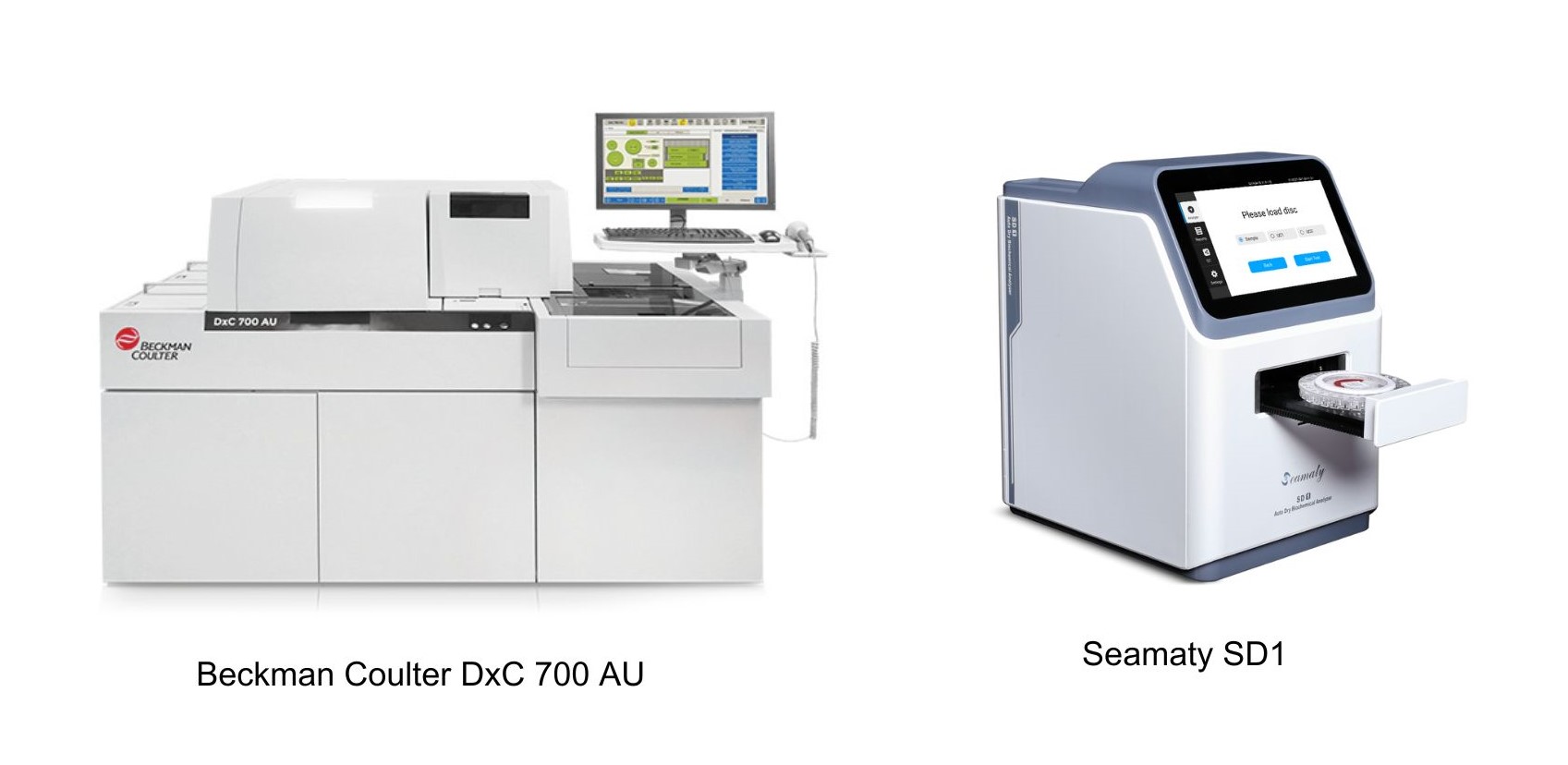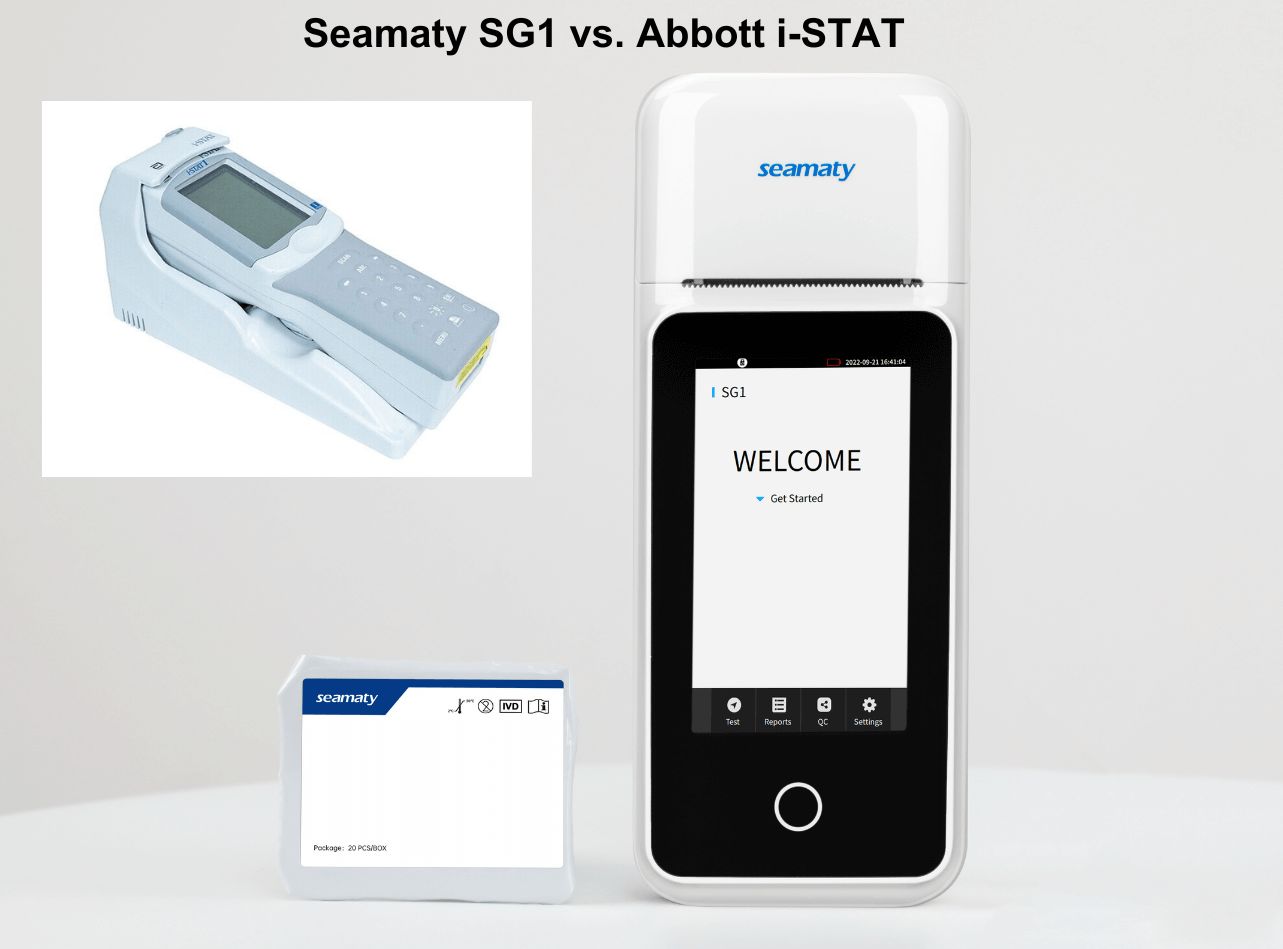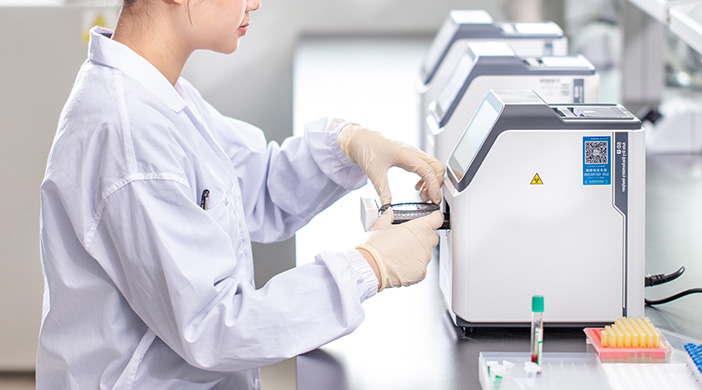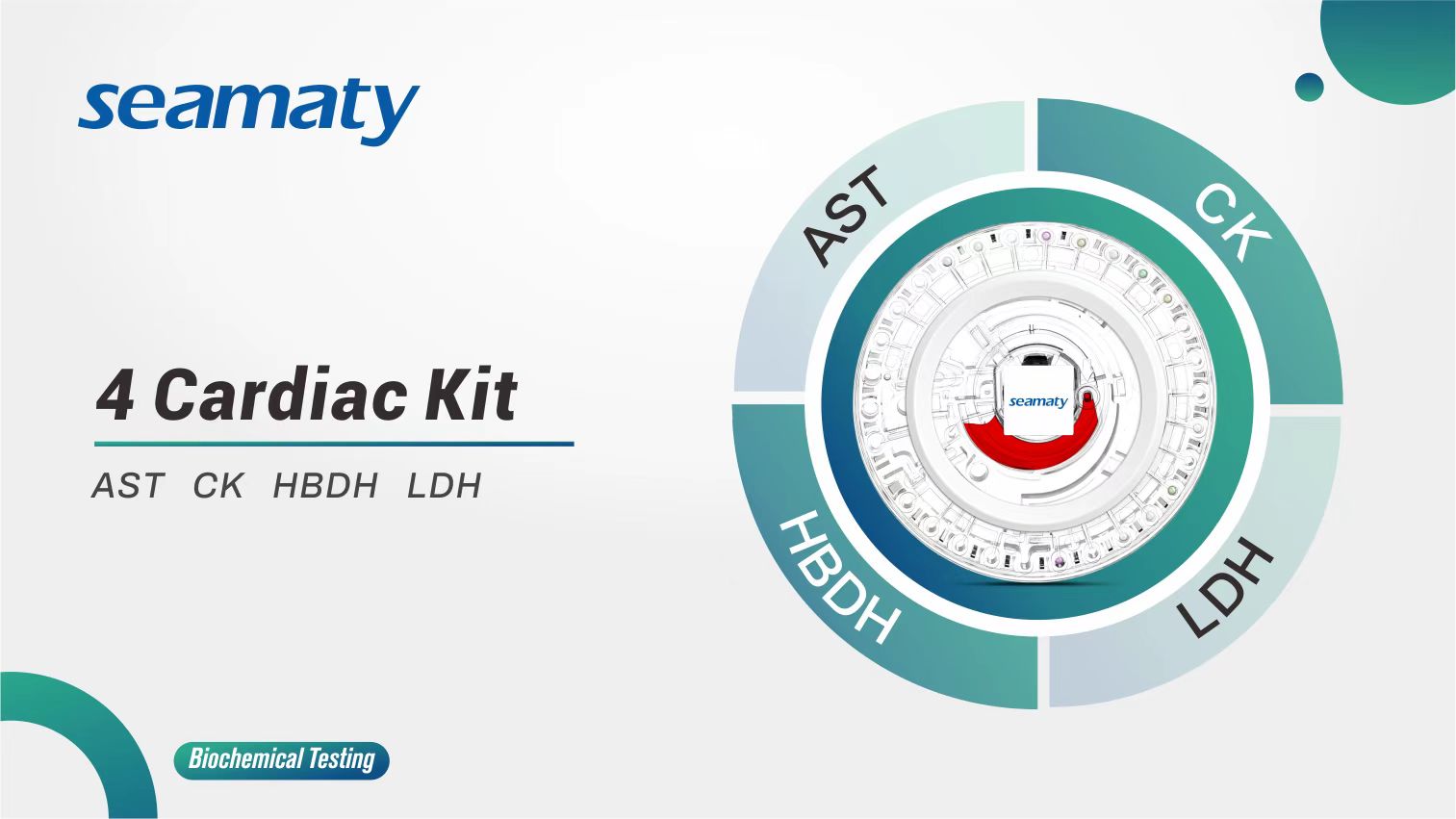release time:2023-06-16 11:02:25
In today's rapidly evolving medical industry, the presence of Chinese fully automated biochemistry analyzers is on the rise. Small-sized laboratories face the crucial task of choosing the right chemistry analyzer to meet their specific needs. This article aims to provide a detailed analysis of two prominent analyzers in the market: the Seamaty SD1 and the DxC 700 AU. By comparing their features, capabilities, and performance parameters, we can determine the perfect chemistry analyzer for small labs.
Introduction
The DxC 700 AU is a highly regarded clinical chemistry analyzer that combines the best features of the popular DxC and AU series. Designed for mid-to-high-volume laboratories, this analyzer ensures accurate results, high reliability, and maximum uptime. Let's explore its key features and specifications:
The DxC 700 AU offers a fully automated, random-access system with STAT capability. It employs spectrophotometry and potentiometry analytical principles, utilizing various analytical methods such as colorimetry, turbidimetry, latex agglutination, and indirect ISE. With a sampler capacity of 10 samples per rack and a refrigerated STAT carousel, it provides efficient throughput of up to 800 photometric tests per hour (1,200 with ISEs). Additionally, the DxC 700 AU features a cooled STAT compartment, priority sample repeat/reflex, and the ability to load reagents while the analyzer is in measure mode.
The Seamaty SD1 is a cutting-edge auto chemistry analyzer designed to simplify and expedite medical diagnoses using minimal sample sizes. Its cloud computing capabilities enable remote decision-making, while built-in features such as a centrifuge, QR code integration, and real-time quality control ensure reliable and consistent results. Within just 12 minutes, the SD1 automatically generates and prints test results, allowing healthcare professionals to deliver prompt and accurate diagnoses. Let's explore the key features of the Seamaty SD1 dry chemistry analyzer:
One of the standout features of the SD1 is its requirement of only 100 μl of sample, significantly lower than traditional analyzers. Its user-friendly interface eliminates the need for pre-processing samples, making it accessible to a broader range of operators. The SD1 adopts the photoelectric colorimetric principle and incorporates a built-in real-time quality control system to ensure accurate analysis. It offers quick results, real-time testing, and the ability to connect to the laboratory information system for seamless data management.
Now, let's compare the Seamaty SD1 and the DxC 700 AU analyzers to determine the ideal choice for small labs.
- The Seamaty SD1 requires only 100 μl of sample, making it highly efficient and cost-effective for small labs.
- The DxC 700 AU requires a slightly larger sample size, which may impact sample availability in smaller settings.
- Both analyzers prioritize accuracy, but the Seamaty SD1's real-time quality control system ensures consistent and precise analysis.
- The DxC 700 AU also provides reliable results but may require additional attention to quality control processes.
- The Seamaty SD1's real-time testing capability delivers results within 12 minutes, significantly reducing patient waiting times.
- The DxC 700 AU offers a high throughput of up to 800 photometric tests per hour, ensuring efficient processing.
- The Seamaty SD1's smaller sample size and minimal maintenance requirements contribute to cost savings for small labs.
- The DxC 700 AU, while reliable, may incur higher maintenance costs due to its more complex design.
- Both analyzers offer connectivity options, but the Seamaty SD1's cloud computing capabilities and LIS integration enhance data management and accessibility.
|
Comparison Factors |
Seamaty SD1 |
DxC 700 AU |
|
Sample Size and Ease of Use |
Requires only 100 μl sample |
Requires slightly larger sample size |
|
Accuracy and Reliability of Results |
Real-time quality control system |
Reliable results with attention to QC |
|
Speed and Turnaround Time |
Results in 12 minutes |
High throughput, up to 800 tests/hour |
|
Cost-effectiveness and Maintenance |
Smaller sample size, minimal maintenance |
Potential higher maintenance costs |
|
Connectivity and Data Management |
Cloud computing, LIS integration |
Connectivity options, data management |
Based on the comprehensive analysis of the Seamaty SD1 and DxC 700 AU chemistry analyzers, we conclude that the Seamaty SD1 is the superior option for small-sized laboratories. With its smaller sample size, ease of use, accurate real-time testing, and minimal maintenance requirements, the SD1 offers an optimal solution for efficient and cost-effective diagnostic processes. Its cloud computing capabilities and seamless data management integration further enhance its appeal for small labs.
By selecting the Seamaty SD1, small labs can achieve streamlined workflows, prompt diagnosis, and reliable results, ultimately contributing to improved patient care and overall laboratory efficiency.


2023-05-08
Upgrade your critical care testing with Seamaty SG1: the cost-effective alternative to Abbott i-STAT. Discover its features, advantages, and applications in our comprehensive guide.

2022-09-30
Laboratory medicine is the bridge between clinical medicine and basic medicine. Laboratory Diagnostics has many blood testing devices. Here are 6 common blood testing devices.

2022-09-18
There are many different tests that are used to diagnose heart-related problems. They often include electrocardiograms, X-rays, echocardiograms, blood tests, coronary angiograms, radionuclide tests, MRI scans, CT scans and more. Blood tests are often the most basic diagnostic tool. Blood tests can detect various indices of the patient, while myocardial enzyme profile is usually an important parameter in the clinical diagnosis of cardiovascular diseases.